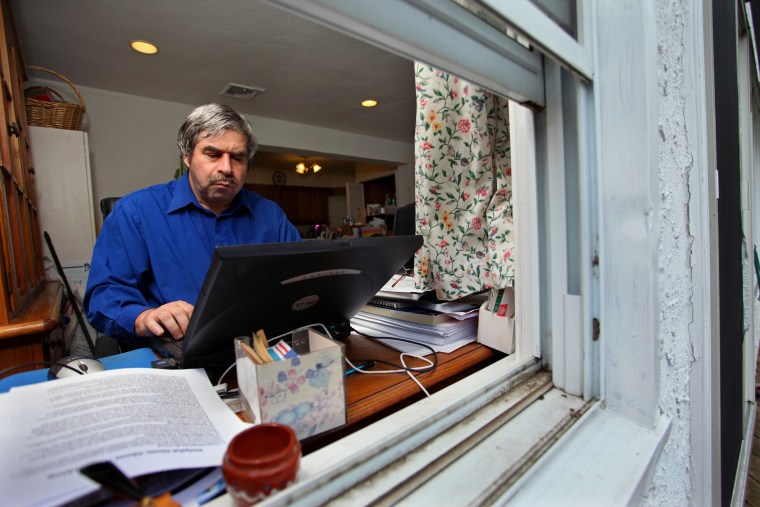For Marc Karell, the end came unexpectedly. In February the 53-year-old environmental engineer was laid off.
As he spoke to other laid-off employees of the same consulting firm, he found they had something in common: They were all older staffers.
With unemployment edging toward 10 percent and companies going through several rounds of layoffs, many are now cutting from the top ranks. More workers aged 50 and older are job-searching in the middle of a recession.
Recruiters say experience is still valued, but the image of the older job seeker as overqualified and overpriced is still a hurdle to overcome.
A study sponsored by the AARP found the same resumes got more calls for interviews if they appeared to come from a 32-year-old than from a 57-year-old.
That was eight years ago, but "we believe in recessions things get worse," said Marc Bendick, an economist with Bendick & Egan Economic Consultants in Washington, D.C. who did the research.
A second experiment sent the resumes with cover letters touting either qualities associated with older people, or those associated with younger people. The older workers still got fewer interviews, but those among them who touted younger qualities — defined as creativity, energy or technological skills, among other things — did better.
"Unfortunately, we can't change society's stereotypes, but individuals can separate themselves by noting how they don't match the stereotype," said Bendick.
Jennifer Grasz, spokeswoman for the job-search Web site CareerBuilder, agrees. "It goes back to how you repackage your skills," she said.
An older worker with a longer and more varied resume has a good chance of finding a job in a new industry as long as he or she can relate experience to the job at hand, experts say.
"I always tell people, especially the older ones, you should always have a resume tailored for the job you want. Yes, it takes more time, but it's the only way," said Lewis Benavides, associate vice president for human resources at Texas Woman's University.
A functional resume, in which work experience is arranged by skills instead of chronological order, is one solution. It highlights jobs that involved similar skills to the job you're applying for and boils down others to a line or two.
Benavides said his recruiters have 15 to 20 seconds to look at each of the thousands of resumes they receive every month, so anything relevant should be easy to glean at a glance.
Many employers now also use scanning programs that look for specific terms in resumes. So if you answer an ad, use its buzzwords in your resume to better your chances at making the first cut.
But be honest. Don't fudge your experience or lie about your age. Employers don't like feeling like they're not getting the whole picture, experts say.
After a few months of searching, Karell decided to open his own firm, Climate Change and Environmental Services LLC, out of his home in Mamaroneck, N.Y. But before giving up the job hunt, he had decided against trimming his resume, feeling his 25-year experience was his calling card.
"I didn't want to dumb myself down," he said. "I wanted to give a true version of who I am."
Recruiters also say one should be true to oneself in appearance, as well. A job interview is a good opportunity to take an inventory of your look.
"You don't want to dress as a 22-year-old, but you want to make sure your appearance does not radiate, 'I'm stuck 20 years ago,'" said Bendick.
Technology can help project a youthful image too, say experts. Take advantage of social media such as Twitter and Facebook to make contacts and update them on your search. It will show that you are not intimidated by technology and are up to date.
"In that generational group that's making those hiring decisions, this type of technology is common. It's like waking up in the morning," said Benavides. "The more you can communicate in that language, the best chance you have."
Karell set up a Web site for his firm, www.ccesworld.com, and linked up with other small firms to get some strength in numbers when bidding for projects.
Networking is crucial for older job seekers, especially building contacts outside their age group, say experts. The management ranks are full of executives in their 30s and 40s who will know of available jobs, so join an association to meet them, said Benavides.
"Your common denominator when you're speaking to anybody — whether they're 20 years old or 50 years old — is you're in the same profession," he said.
Ultimately, it comes down to attitude, experts warn. Don't dwell on your age and how it's an obstacle, because that will come across in how you perform in interviews and meetings with contacts.
"Half of it is an attitude," said Dawn Fay, district president in New York for recruiter Robert Half International. "You're going to get what you present."
